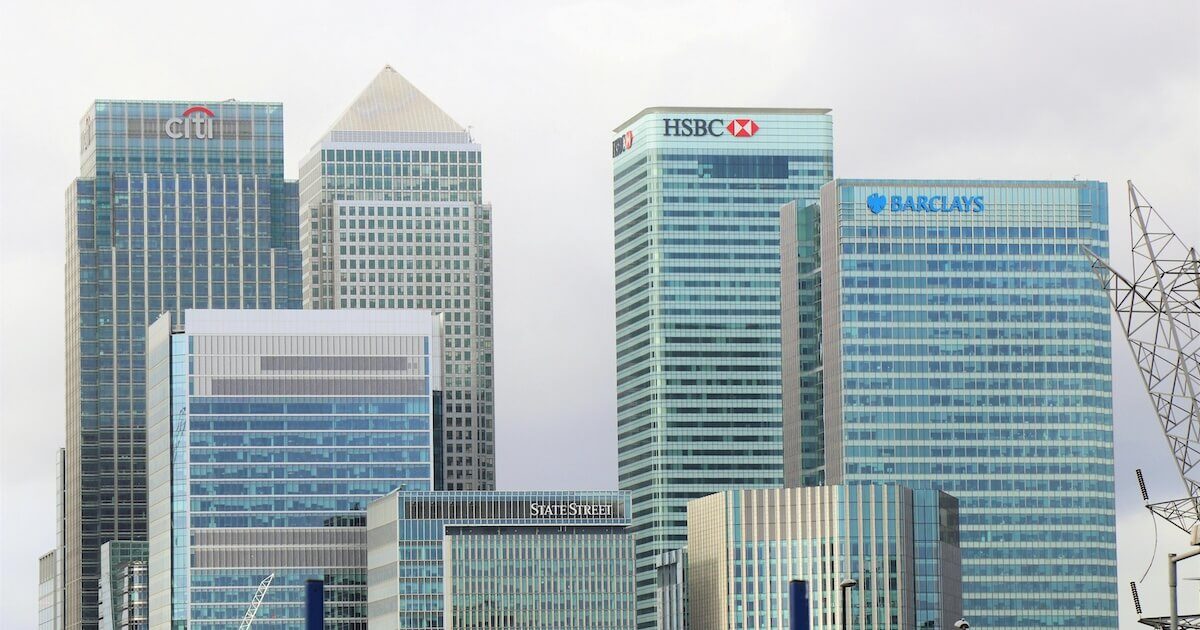Removing the Barriers: Creating A Digital Bank for Black America

In this Disruption Talks live stream, we speak with Asya Bradley, Founder & COO of First Boulevard, a neobank built for Black America. Asya has seen how prevalent the barriers to entry can be for simple financial services in the Black community.
Seeing that discrimination, she’s been on a mission to launch a bank that takes those barriers away and levels the playing field for Black Americans. In this interview, Asya talks about banking, diversity, racism, and creating equal opportunities.
Filip Sobiecki: Can you give us an elevator pitch on what First Boulevard is?
Asya Bradley: First Boulevard is a digitally native new bank, and our focus is on Black America. Having said that, we are all-inclusive, so anyone is welcome to join. Allies are 100% welcome here because we really want you all to be part of this movement.
What we’re looking to do is level the playing field and create a new system. The current financial services system was created by a very narrow demographic, middle-aged and older white men.
We know that the system is designed to benefit them, but it never considers all the different demographics and unique challenges that Black people face.
Your launch is set for later this year. How long has this been in the works?
It’s been a whirlwind. My co-founder, Donald Hawkins, and I are good friends and have known each other for years. We got back in touch again after what was happening last summer.
I remember watching the murder of George Floyd on TV and thinking, “how is this possible? How is it that a human life is being compared to $20?” That’s essentially what it was about, a bomb check or potentially counterfeit $20.
When I watched it, I thought, “I need to find a solution.” I reached out to Donald to see how he was processing it, and he came out and said, “we need to solve this. Every time we see these things, it comes down to money. People are out there trying to get money and are being constantly pushed down.”
I wrote an article earlier this year about how the system is entirely broken. It doesn’t serve Black communities at all.
We started to toy around with ideas and worked out a way to build a solution. In August, we got incorporated, and by the end of November, we raised our seed round. Now the goal is to launch in June.
How many people are on your waitlist so far?
We’re at almost 200,000 people so far, and it’s grown pretty quickly. In the last few months, we’ve seen the word get out a bit more, so we’re seeing more traffic on our website.
What we’re also seeing is people from all walks of life. People often think if you’re dealing with Black America, underbanked people, under-served people, they must be poor. That’s just not the case. Something I always want to emphasize is that building a product for underbanked people is not synonymous with saying we’re building a bank for poor people.
What we’re doing is building a bank that equalizes the playing field, so we all get an equal starting point.
I’ll give you an example of something that happened last summer. Jimmy Kennedy, an ex-NFL player, a multimillionaire, went to JP Morgan to open a private client account. It turns out the people at the top didn’t feel comfortable giving him that status because they were worried that he’d get angry with them. Can you imagine being told as a multimillionaire that his money was not good enough?
This is a major bank we’re talking about, yet they could get away with this form of discrimination. It’s just one recent, high-profile case, but there are so many more like it.
This discrimination hurts the economy. It hurts America to have 13% of your population not involved in the economy in a way they really could be. That’s 13% of this country being pushed down, unable to reach its true potential because it’s being barred entry from basic financial services.
Can you tell us a bit about your audience? What is your typical customer persona?
We did a lot of customer discovery and surveyed many of the people on our waitlist to see what they wanted us to build. Our target market is very sophisticated. They know what they want and need, they just haven’t had access to it.
We’ve given our customer persona a name. She’s called Nia. She’s a mid-30s, a highly educated Black woman. She has a master’s degree or a Ph.D.
We’ve mapped out a financial journey for Nia. Nia’s at the stage where we would help her manage her student loans, consolidate them, or maybe refinance them to make her payments more manageable. This would then leave her with more income left over to save, moving her into the Saver stage. In that stage, we’d help her put aside an emergency fund, so she has a bit of a cushion.
The next stage after that is to get the user into the Investor stage. Customers at this stage want to know more about investing in different stocks, ETFs, and even getting into crypto.
Was there anything else that surprised you about your customer discovery findings?
One thing that stood out from our interviews was one person who was in college. Her roommate’s grandparent passed away, which meant they could graduate debt-free due to the inheritance.
However, when her own grandmother passed away, she had to open a GoFundMe account to pay for her burial. It was so impactful to hear that because it’s so true.
It all goes back to the idea of financial inequality. We’re told to buy houses. That’s the way to gain wealth. However, if you buy in a predominantly black neighborhood, your property values are always far lower than if you had purchased in a white neighborhood.
You mentioned that leaving your job was an emotional response first that led you to a rational choice. Was it a difficult choice?
It’s a huge shift in your career. For some context, I actually started my career in Cisco Systems in Amsterdam, but I always wanted to do something a bit more meaningful, so I worked with Amnesty International on some documentaries.
I wanted to see more of the world and moved to Egypt, where I owned my own business in marketing and PR for brands and also UN agencies. As the revolution began, I moved to Chicago as an investor and then eventually San Francisco because I missed working in tech.
I spent some time working in fintech, which I really enjoyed, but when last year happened, I really didn’t think I had a choice. I have three sons at home, and I want to see them safe. Leaving my job was hard, but making a difference was more important than worrying about my next paycheck.
What are some discouraging things you’ve heard from investors?
Something that was a little bit discouraging was when investors gave us the impression that they didn’t think the market or our mission was important enough.
We're from that community, so we think it's pretty worthwhile. This is 13% of the American population.
However, we’re starting to see more interest, not just from our demographic but from true allies as well. They’re investors who aren’t just about performative actions. They put their money where their mouth is.
What do you think about other banks trying to replicate what First Boulevard is doing?
Shoutout to the Greenwood team, they’re another bank built for BIPOC, and I love what they’re doing. I welcome other banks to come out and build services for this community because it’s needed. We can’t do this alone, so the more people we get on board, the better.
How can we educate the community about finances?
First Boulevard also has another product – a PFM tool that anyone can use to learn about finances.
We want people to learn and educate themselves about finances so they can better understand and work towards their goals.
We’ve created a bunch of content in audio track form. They’re one or two-minute recordings that are uploaded onto your personal playlist. This playlist is tailored depending on what you’re interested in learning. For example, if you’re interested in buying a house, you’ll see recommendations about saving for a down payment or interest rates.
We also have little quizzes to help you remember what you’ve learned, earn points and money. This incentivizes people to keep learning more.
What do you and Donald want to see in a year or two from now?
We’d love to see more active users on our platform. I’d love to see the number of Black-owned banks increase. When we first started, there were about 19. Now there’s only 14 out there.
What is your decision-making framework?
Our North Star is asking questions like, what’s good for our community? What’s good for Black America, America in general, and our company? We always ask ourselves those simple questions before making a decision.
If you had a magic wand and could give every 12-year-old in the world the gift of knowledge, what would it be?
It might sound corny, but love and empathy, the ability to connect with your heart, and be true to yourself as an individual.
Learn to love yourself because I find that a lot of what we see out there is from people who are hurting. People are carrying too much trauma. Trauma they’ve inherited from previous generations.
I’d recommend the book My Grandmother’s Hands which breaks down the effects of intergenerational trauma on the individual and how that manifests in societies. I think this is why people feel so disconnected from their own empathy. That would be my magic wand wave.
This discussion is part of our Disruption Talks recordings, where we invite experts to share their insights on winning innovation strategies, the next generation of disruptors, and scaling digital products. To get unlimited access to this interview and many more, sign up here: www.netguru.com/disruption/talks







